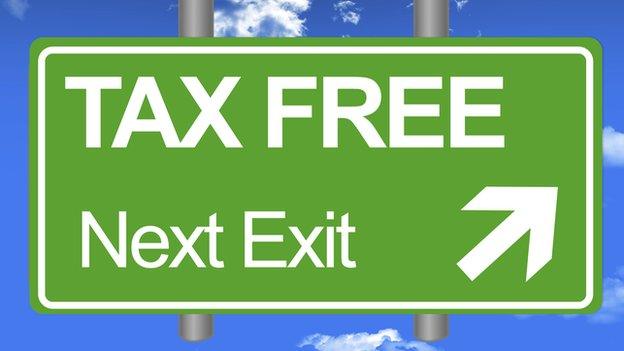Crown Dependencies try to shake off EU 'tax haven' tag
- Published
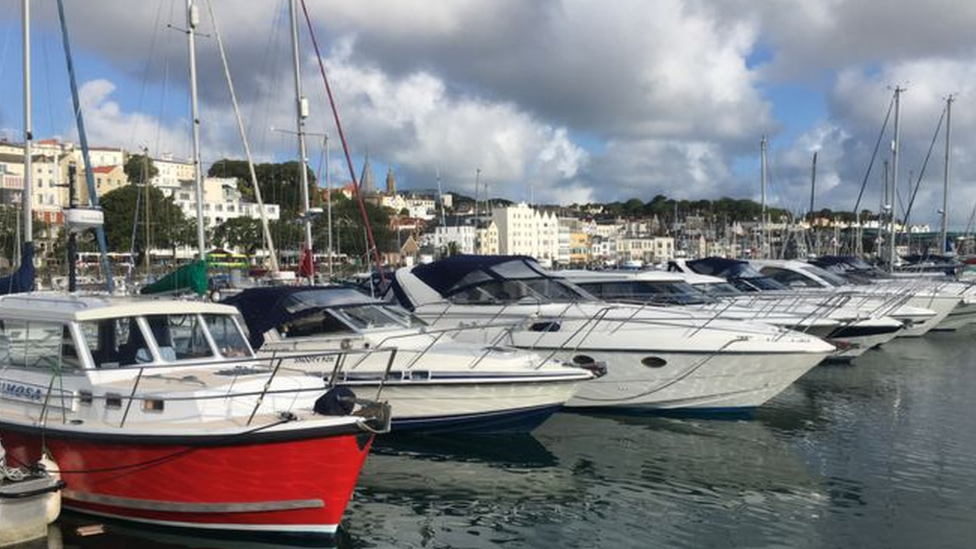
About 14,000 of Guernsey's 17,781 companies are tied to the financial services sector
Britain's Crown Dependencies are home to 76,000 companies - slightly fewer than one for every third person living there.
It is many of these companies that will now have to prove their presence in Jersey, Guernsey and the Isle of Man is not merely a tax-dodging exercise.
New measures mean there is further onus on these firms to justify why they should benefit from the low or non-existent tax rates paid on their profits in the islands.
The laws were introduced after the European Union threatened the dependencies with inclusion on its 2019 tax blacklist, along with 62 other places.
With it comes the potential for economic sanctions and significant damage to the reputations of the islands' financial services sectors.
The EU is concerned some of the tens of thousands of offshore companies are routing company profits to the islands, where they pay little or no tax, and potentially deprive member states of income to spend on essential public services like schools and hospitals.

Jersey's finance sector provides about 40% of the island's national income
The dependencies say the recent law change addresses these concerns, external - by introducing fines of up to £100,000 for so-called brass plate companies that cannot prove they have a sufficient physical presence in the islands.
Depending on the type of company, tax-resident firms will have to demonstrate they are locally managed, generate income in the islands, and that they have a physical presence in terms of staff, premises and local spending.
EU attention on the islands sharpened after the 2017 release of the Paradise Papers, where Jersey and Isle of Man were the focus of major revelations.
Documents showed Apple's Irish subsidiaries, believed to hold most of the company's massive $252bn (£200bn) overseas cash hoard, were managed from Jersey between 2015 and 2016.
The island's 0% corporate tax rate for foreign companies would have enabled Apple to avoid billions in tax around the world.
Jersey also ranked fourth out of 24 "Sink OFCs" in a 2017 study, external identifying financial centres deemed particularly attractive to funnel corporate profits, while neighbouring Guernsey and the Isle of Man did not feature.
In response to the Apple revelations, Jersey's chief minister said the island would consider changing its laws to stop abuse of its tax system.

The company count
In 2017, the UK had 5.7m businesses, about one for every 11 people
The Isle of Man has 26,000 registered companies, more than double the 10,000 people working in the island's financial services sectors
Jersey has 32,000 companies, a number that has stayed quite static over the past seven years
Jersey's banking deposits have nearly halved since the financial crash, but finance still directly accounts for 40% of the island's economy, employing about 13,000 people
Guernsey has just under 18,000 companies, with 89% not employing staff locally
Guernsey's finance sector contributes 40% of national income, employing nearly 7,000 people
Sources: Guernsey, Jersey, Isle of Man governments and company registries, House of Commons Library

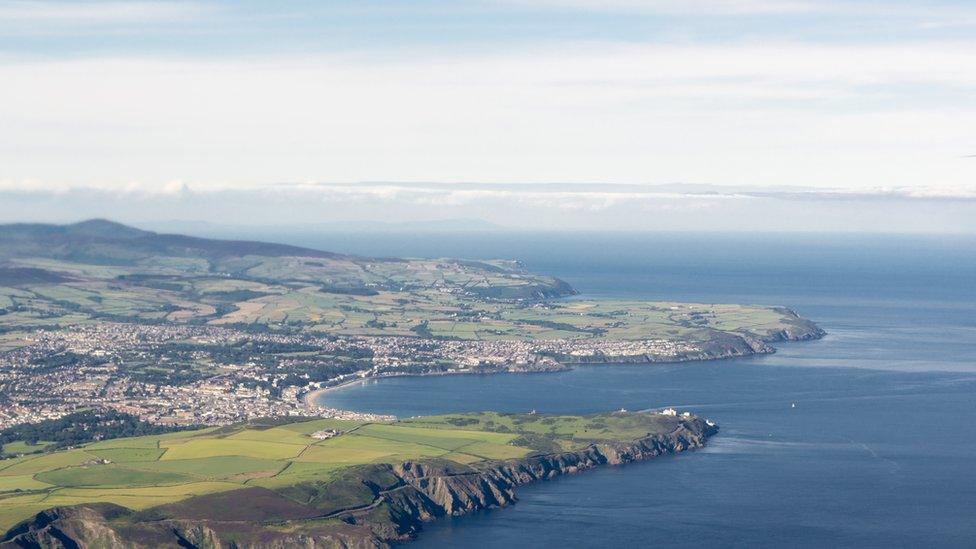
A quarter of the Isle of Man's workforce are employed in financial services
Despite this attention from the EU, Jo Huxtable, a Guernsey-based tax partner at accountancy firm Deloitte, says there's little evidence the islands have been facilitating widespread profit shifting.
"The EU is raising a concern," she said.
"Perhaps it is a perception of places like the Channel Islands, but when you actually work here you see what goes on and see the types of businesses that are here.
"I think a lot of companies will find that they are able to meet these requirements," she said.
The Isle of Man's parliament agreed its new laws last week.
Treasury Minister Alfred Cannan said they meant the island would continue to be respected internationally as a "well regulated, transparent and co-operative jurisdiction".
He said the laws showed the Isle of Man's "dedication to meeting international standards and help us continue to play our part in the global move to ensure fair taxation".
The Paradise Papers also revealed how the Isle of Man was used by Formula 1 Champion Lewis Hamilton to avoid tax on a £16.m luxury jet - prompting the EU to launch infringement proceedings on similar tax breaks earlier this year.

Labour MP Dame Margaret Hodge has been a longstanding critic of financial transparency in the Crown Dependencies
By bringing in the new laws, Britain's dependencies hope to avoid finding themselves on the 2019 EU tax blacklist. The most recent version, external lists Trinidad and Tobago, Samoa and the US territories of American Samoa, Guam, and the US Virgin Islands.
Despite accusations they are "secrecy jurisdictions", there is some information publicly available on the 76,000 companies registered in Jersey, Guernsey and the Isle of Man.
Search for a company on the island's registries, presuming you know what it is called, and you can find its address, date of registration, the nature of its business, and whether it is still active.
Pay a few pounds and you're likely to be able to access documents on things like changes of directors and addresses, and the company's founding documents.
But campaigners say perhaps the most important bit of information - who ultimately owns the company - is kept out of the public domain.
That is a problem, they say, because offshore leaks have shown anonymous companies are open to abuse.
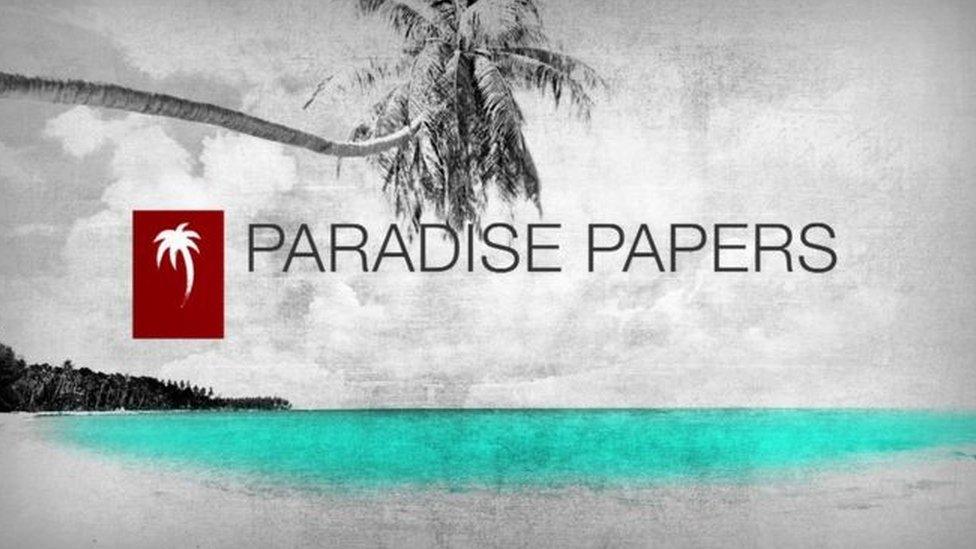
The EU launched a third tax inquiry with a focus on the islands in response to revelations in the 2017 Paradise Papers
Since 2017, the Crown Dependencies' governments have exchanged ownership information with UK authorities under a new agreement, even though the islands historically kept data on business owners.
But unlike the UK, the islands defend their right to keep that information out of the public eye, some arguing it could lead to it being exploited by criminals and kidnappers., external
If there are suspicions of tax evasion or criminality, the dependencies make ownership details available to law enforcement and tax authorities within 24 hours of them asking.
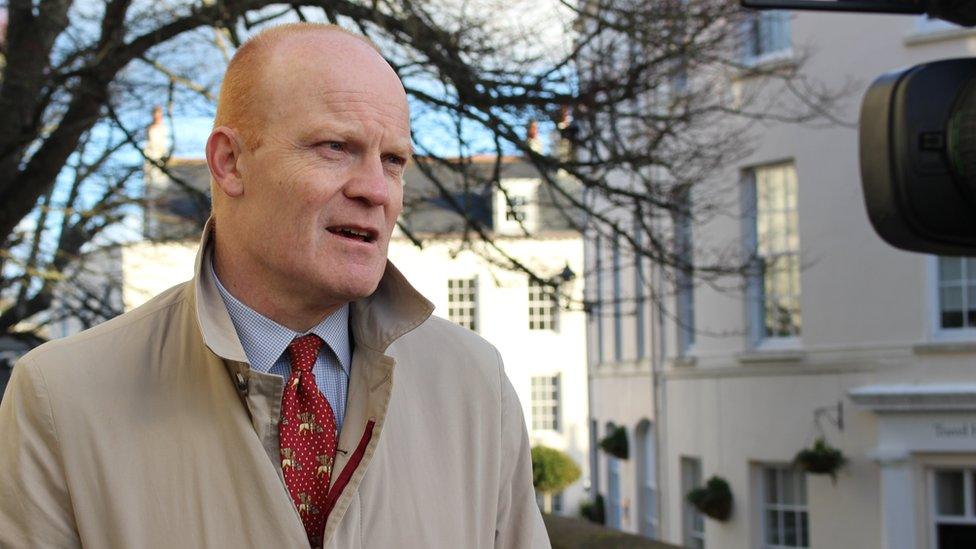
Guernsey Chief Minister Gavin St Pier has said the Paradise Papers leaks were part of an orchestrated political campaign so serve the EU in Brexit negotiations
Campaigners such as Labour MP Dame Margaret Hodge insist publicly accessible registers of ultimate business owners are an important tool in tackling offshore abuse.
It is a view echoed by German MEP Sven Giegold, who has welcomed the introduction of the islands' substance laws, but added that as long as they maintain 0% tax rates, they will attract firms seeking to shift their profits.
He called on the dependencies to match the UK and EU's commitments to having open registers,, external allowing the public to see who ultimate business owners are.
It is something the islands have resisted to date, despite visits from Dame Margaret and Conservative MP Andrew Mitchell.
Both public and private registers have their weaknesses, however.
A recent report was critical of the UK's approach of not verifying company ownership information, making it less reliable, according to the authors, external.

Jersey played a role in Apple's low-tax drive, documents in the Paradise Papers revealed
One high-profile company has already announced its intention to leave Guernsey, citing the "evolving cross-border taxation landscape".
HICL Infrastructure Company Ltd - an offshore PFI giant previously criticised for alleged tax dodging - is planning to move its tax residency to the UK in March 2019, by which time Guernsey's law will be in effect.
The company, which does not directly employ staff in the island, would not comment on whether the move was prompted by the new economic substance law.
HICL registered in Guernsey in 2006, but its expected departure to the UK is not likely to result in a mass exodus, according to finance professionals quoted in a local newspaper. , external
Mrs Huxtable says it is too early to tell whether the tax measures, which come into effect in 2019, will prove an effective deterrent to abusive tax practices.
She also points to a number of additional reporting requirements on Guernsey and Jersey companies under global efforts to tackle the problem., external
"Encouraging transparency and evidencing substance is a positive step in ensuring companies are operating properly," she said.
"I think many large multi-national businesses will find they have already taken steps to ensure they have the right substance."
- Published6 November 2017
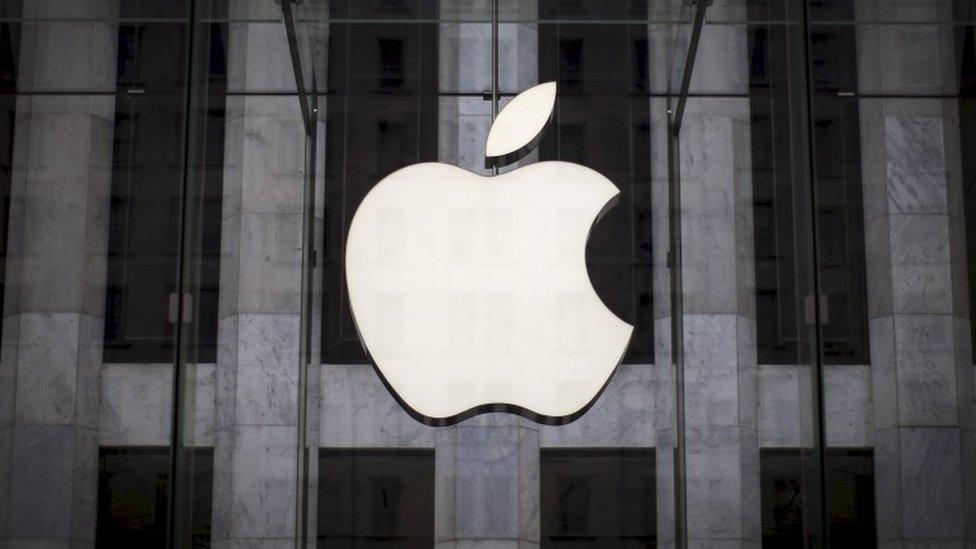
- Published15 November 2017

- Published1 May 2018
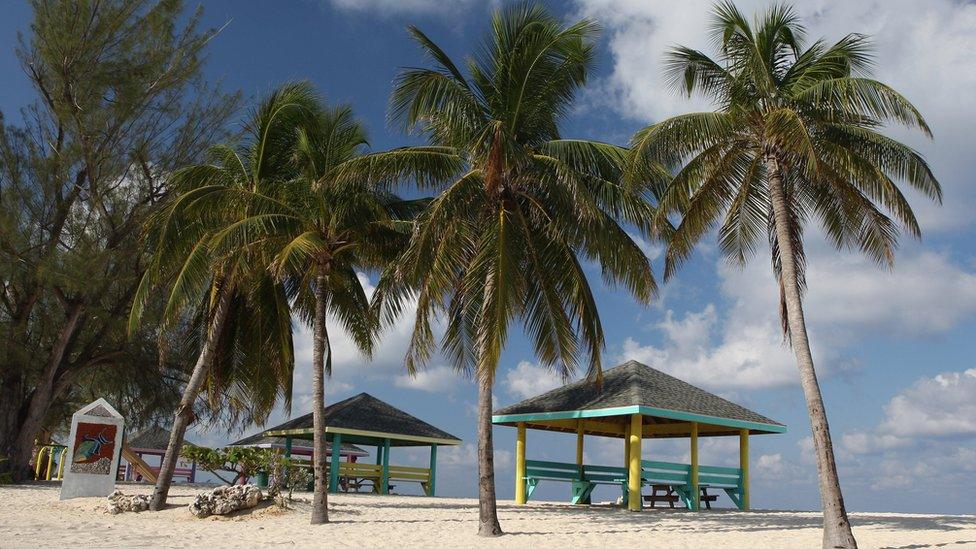
- Published13 February 2018
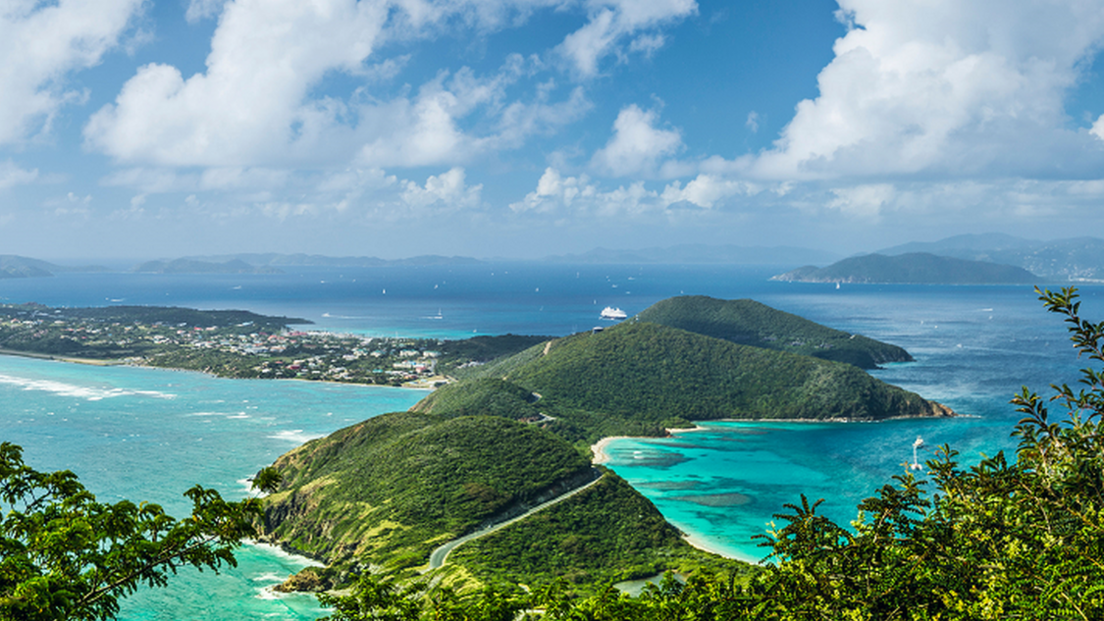
- Published5 December 2017
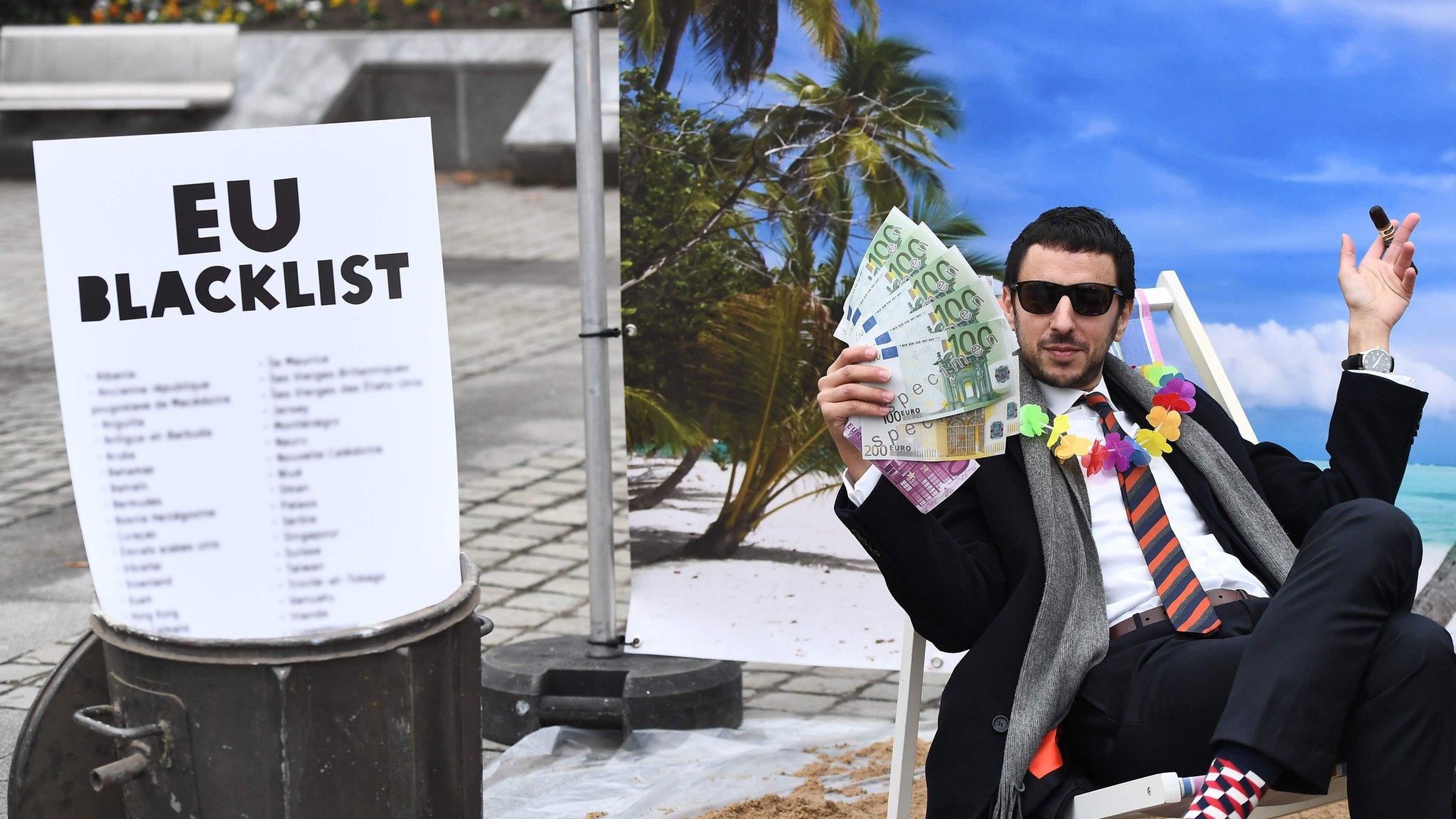
- Published5 April 2016
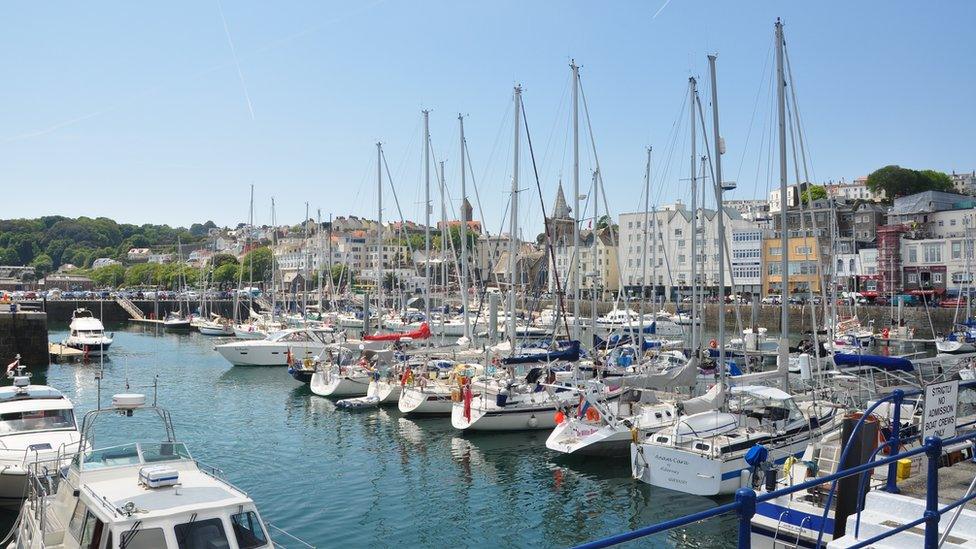
- Published30 July 2015
